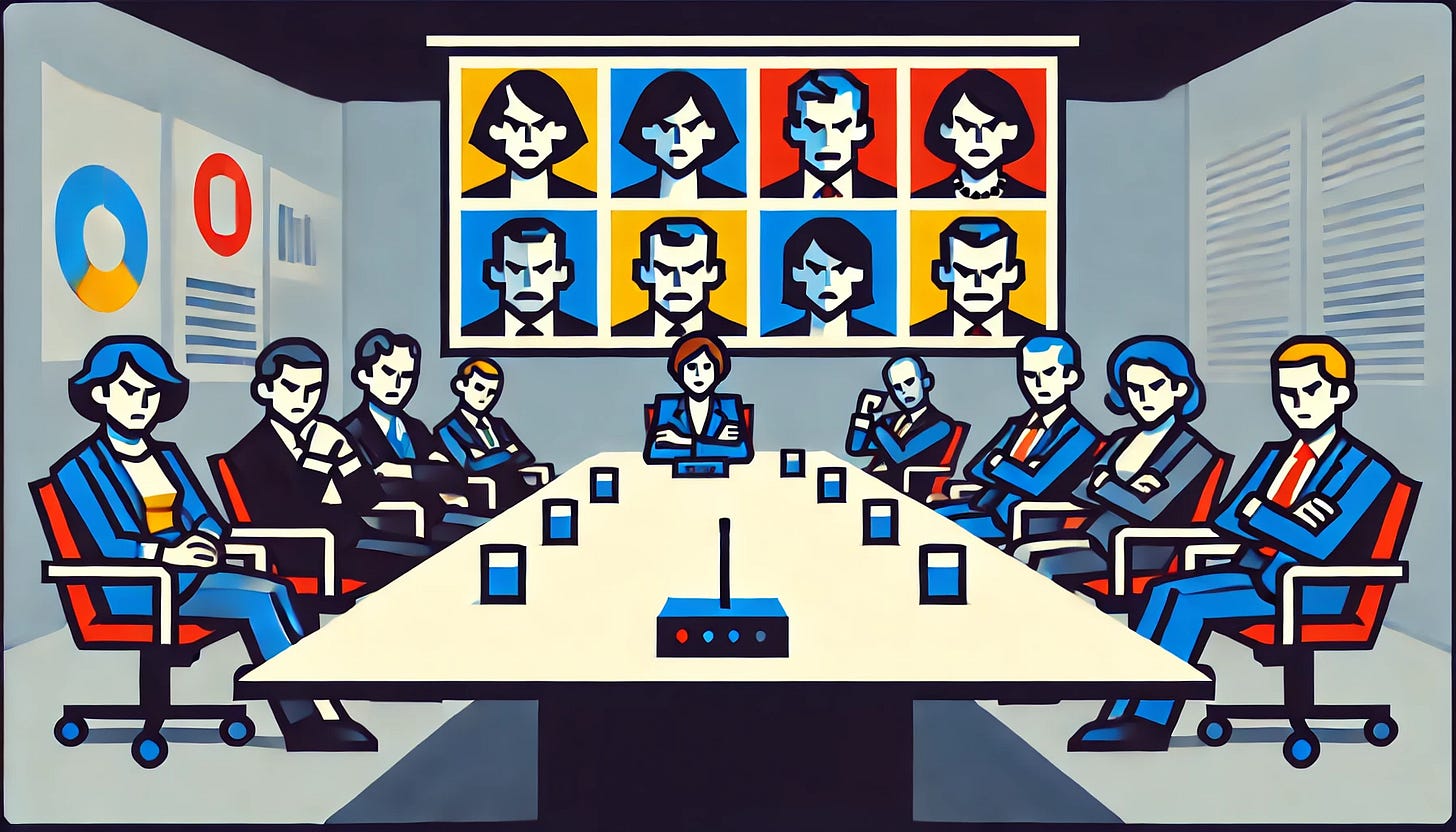Crying Quantum Wolf
X-risk, Statistics. 700 words, 3 minute read. With Claude Sonnet
Dr. Sarah Chen watched the simulation results materialize on her screen, each data point sending a fresh wave of unease through her stomach. The fusion reactor’s quantum tunneling coefficients weren't just increasing – they were accelerating along an exponential curve she'd never seen before.
"Still searching for monsters in the data?"
Sarah turned to find James in the doorway, two cups of coffee in hand. He crossed the room and set one beside her, the peace offering's steam curling into the air between them. Despite everything, she felt a pang of fondness. They'd been close friends once, before the project had driven a wedge between them.
"James..." She gestured at the screen. "Look at this decay pattern. It's nothing like what we saw at lower energy levels."
He leaned in, his earlier glibness fading as he studied the numbers. "Hm. Similar perturbation to what we observed at 20 terahertz, though. Remember how convinced you were about that one?"
"God, don't remind me." Sarah ran her fingers through her hair. "I nearly resigned over it. But this is..." She paused, questioning herself for the hundredth time. "The eigenvalues are showing a completely different signature."
"Which could mean we're approaching a critical threshold," James said, nodding. "Or it could be another false positive from an overtuned detection system. You know as well as I do how many variables we're juggling here."
Sarah stared into her coffee. "Sometimes I wonder if I am being paranoid. Every time I see a concerning pattern, it turns out to be nothing. But the math says there has to be a breaking point somewhere. We can't just keep pushing the power higher indefinitely."
"No one's saying we should," James replied, his voice gentler than before. "But we can't let theoretical fears paralyze us either. This project could revolutionize energy production, Sarah. Real people's lives could be changed."
"If we get it wrong, real people's lives will definitely be changed," she murmured.
The board meeting that afternoon was worse than she'd expected. Sarah had brought her data, her simulations, her carefully reasoned arguments. But with each slide, she saw the same expressions she'd seen too many times before: the polite skepticism, the barely concealed impatience.
"Dr. Chen," the chairman finally interrupted, "your diligence is commendable. But given your... history of concerns, you must understand our position."
"I understand that I've been wrong before," Sarah said. "But being wrong about when something will happen doesn't mean—"
"That it won't happen at all. Yes, we're familiar with the argument." The chairman smiled thinly. "The board has made its decision. We proceed to 30 terahertz tomorrow."
Later that night, Sarah sat alone in her darkened office, running one final set of simulations. The results hadn't changed. She opened a new document and began typing her resignation letter, then stopped, cursor blinking accusingly.
What if she was wrong again? What if she was throwing away her career over another false alarm? The same doubts that had plagued her for months resurfaced. But underneath them was a deeper certainty, rooted in mathematics she couldn't ignore: the barrier would fail. If not at 30 terahertz, then at 35, or 40. The only question was whether she would be there to witness it.
She finished the letter and gathered her personal items. As she left the building for the last time, she passed James's office. He was still there, poring over her data with a frown she hadn't seen earlier. He looked up as she passed.
"Sarah, wait. Some of these correlations..." He trailed off, seeing her box of belongings.
"I hope I'm wrong again, James," she said softly. "I really do."
The next morning, as Sarah's plane reached cruising altitude, her phone buzzed with a string of urgent messages. She turned it off without reading them and closed her eyes, trying not to picture the quantum barrier containment field flaring to life at 30 terahertz.
Behind her, beyond the small airplane window, the horizon began to glow with an unnatural light.



